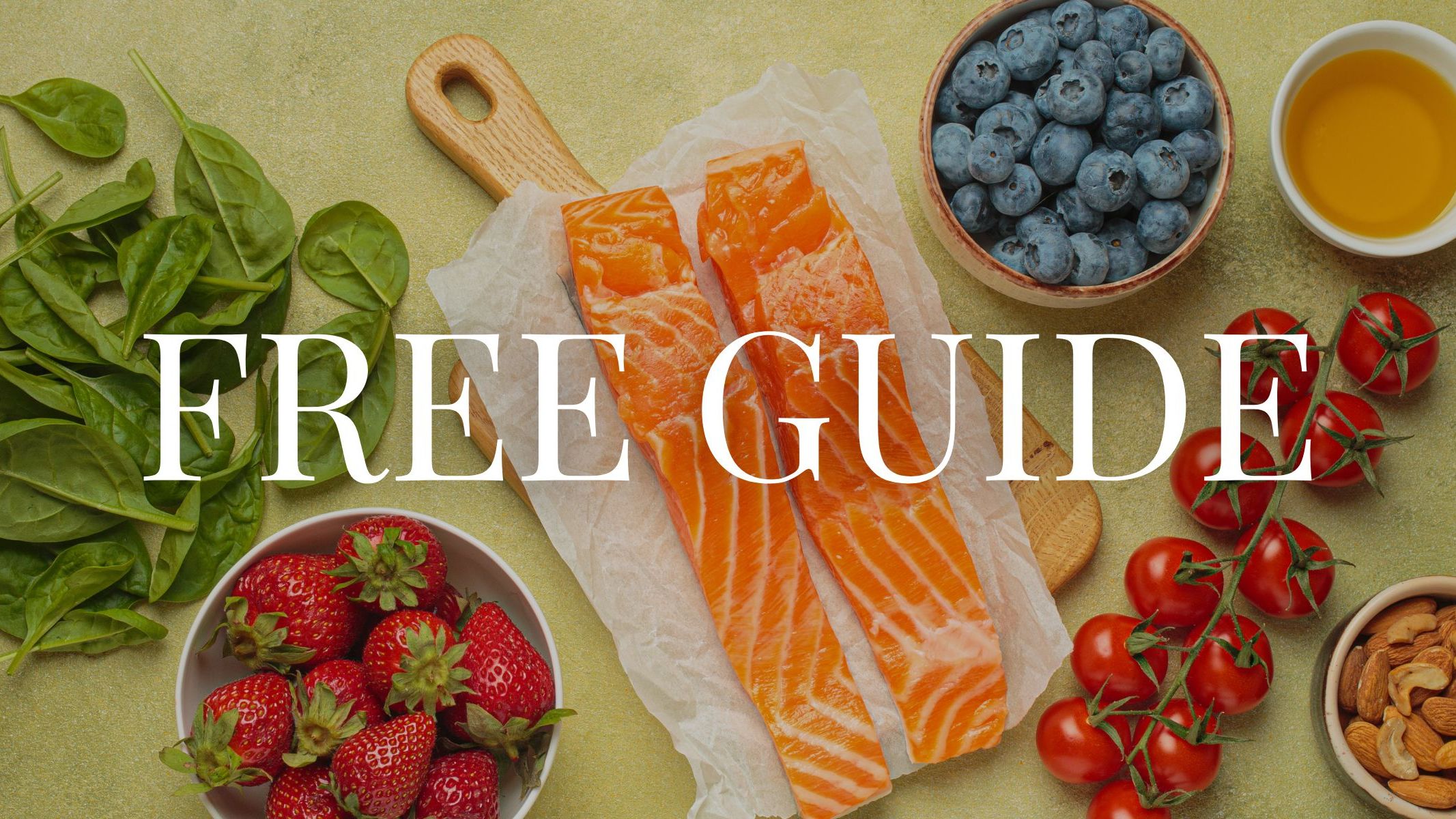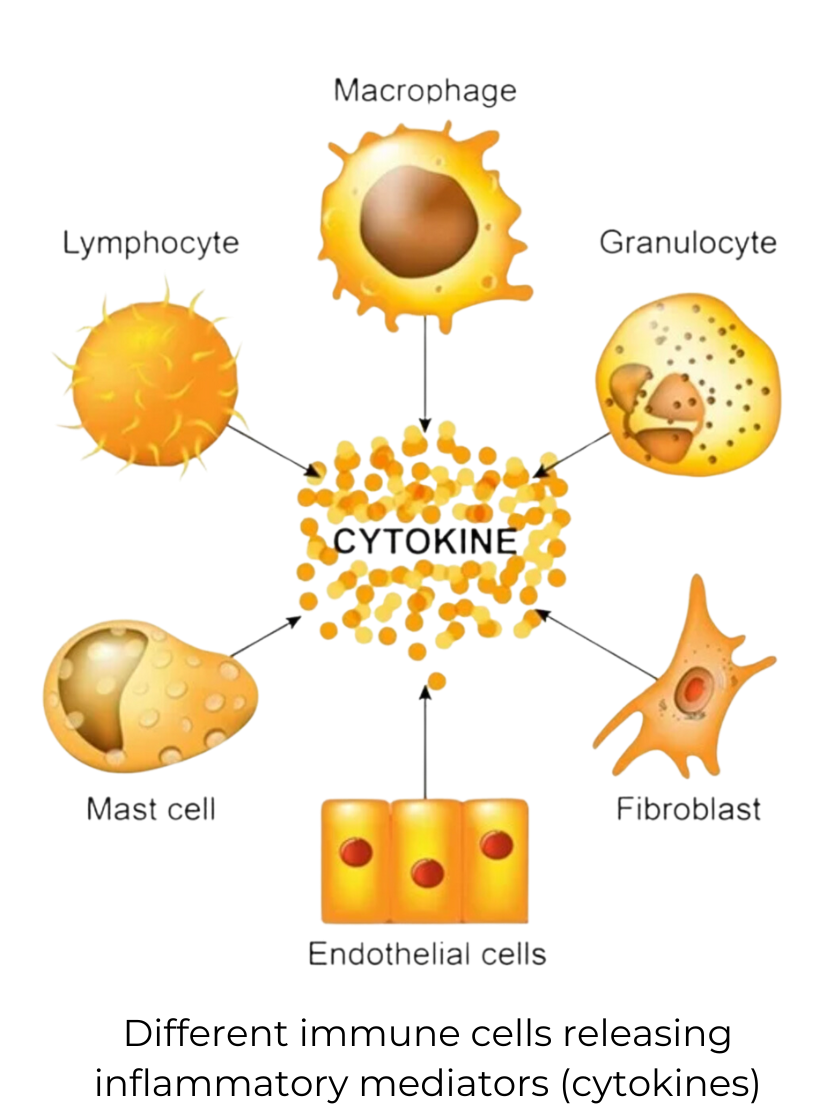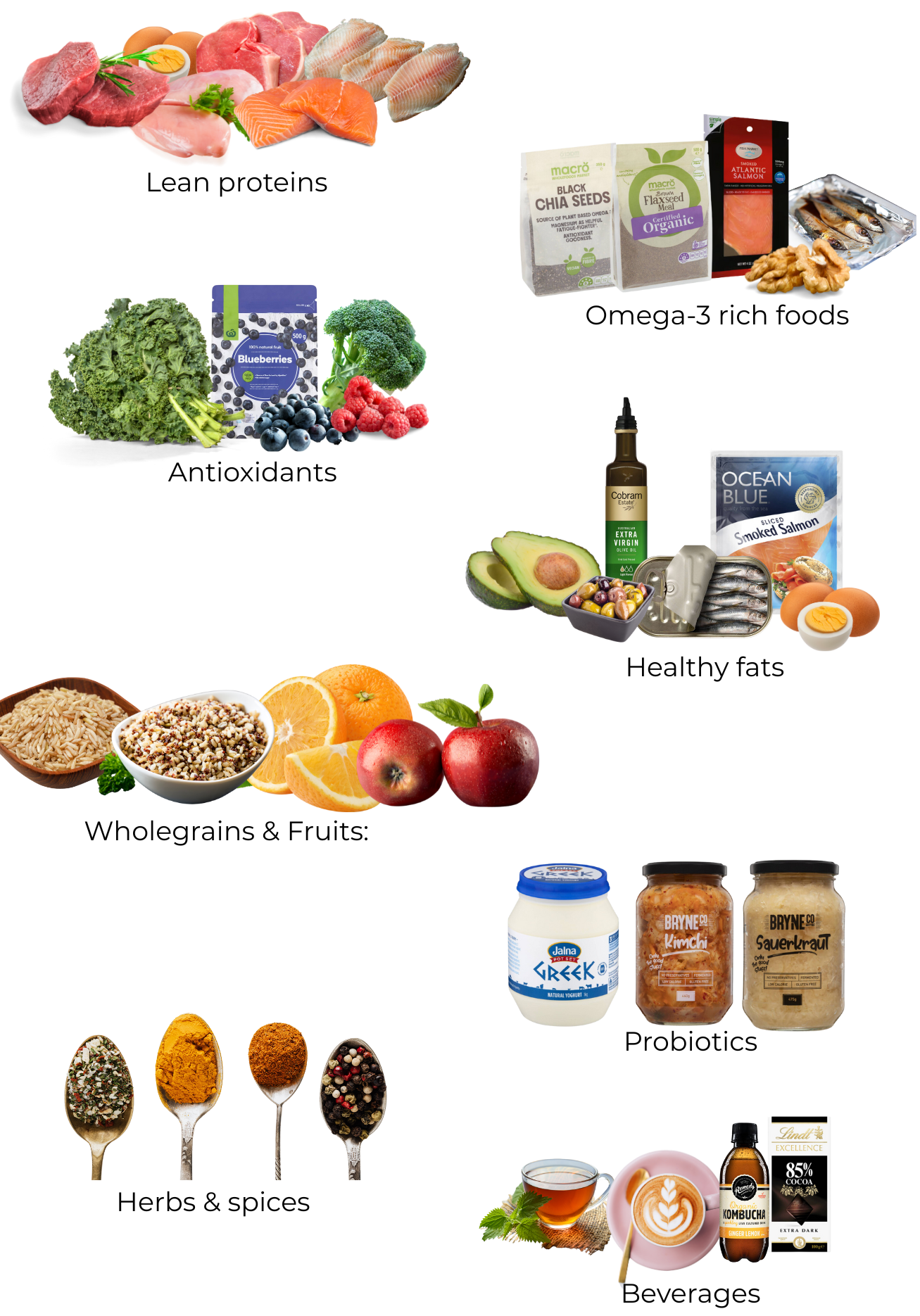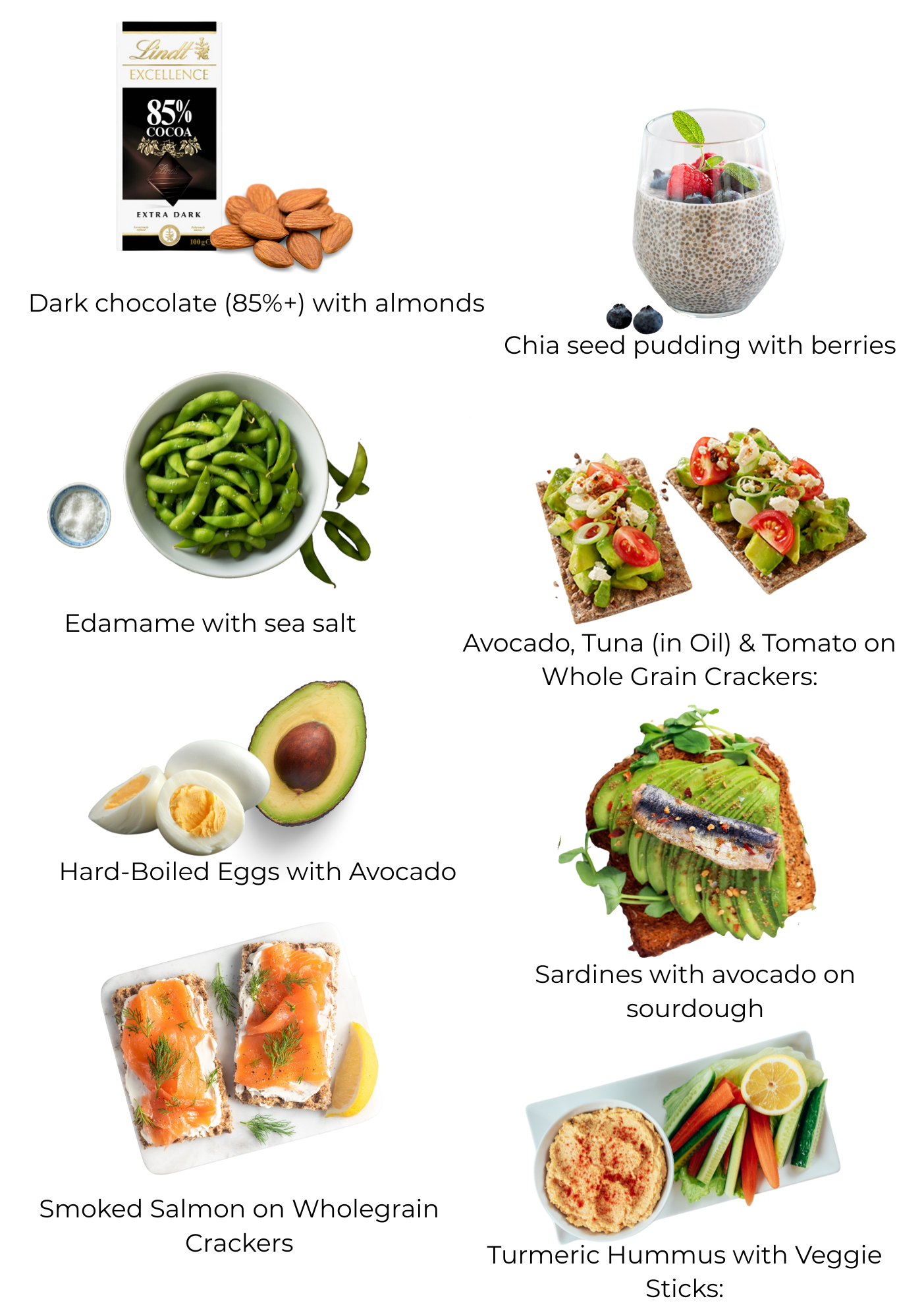How to: Fix your inflammation with the Anti-Inflammatory diet
Oct 09, 2025
Feeling tired, bloated, or constantly “off”?
You’re not imagining it.
If you’ve been struggling with fatigue that won’t go away, unpredictable gut issues, recurring skin flare-ups, painful periods, or that stubborn weight that just won’t budge...
There’s a good chance chronic inflammation is quietly working behind the scenes, disrupting your body's natural ability to keep you regulated.
What's wild is that SO many of my clients were living in a constant state of low-grade (sometimes high grade!) inflammation without even realising it. Your body does its best to protect you, but when that response never “switches off, it can start to work against you, impacting energy, metabolism, skin barrier function, mood, sex drive, hormonal balance, nutrient absorption and more.
Now here’s the good news…
Did you know that you can drastically reduce systemic inflammation in your body by altering your diet?
Here’s what you need to know (and yes, of course I’m going to give you the science!) 
Understanding InflammationInflammation is your body’s natural defence system, it’s how you heal cuts, fight infections, and recover from stress. This short-term response is known as acute inflammation, and it’s a good thing.
However, when inflammation becomes chronic, your immune system stays “switched on” even when there’s no real threat. Over time, this can lead to tissue damage and the development of long-term health issues such as:
- Heart disease
- Diabetes and poor metabolic health
- Gut health issues
- Inflammatory skin conditions
- Menstrual health problems (like PCOS and endometriosis)
- Autoimmune and mental health disorders
What Causes Chronic Inflammation?There’s rarely one single cause, it’s often a combination of stress, environment, and lifestyle factors that build up over time.
Common triggers include:
- Poor diet - Processed foods, sugars, and refined oils can disrupt gut balance
- Chronic stress - Activates the body’s fight-or-flight mode and floods it with inflammatory chemicals
- Environmental toxins - Found in cleaning products, makeup, and even plastics
- Medications - Long-term use of antibiotics, contraceptives, and antidepressants can alter gut health
- Lack of movement and poor sleep - Reduces the body’s ability to repair and regulate inflammation
The Mind-Body ConnectionYour nervous system and your immune system are in constant communication. When you’re under chronic stress, your sympathetic nervous system (SNS), the “fight or flight” mode stays activated, releasing chemicals that promote inflammation.
On the flip side, your parasympathetic nervous system (PNS), the “rest and digest” system, helps calm inflammation through the vagus nerve. Practices that enhance vagal tone, such as deep breathing, meditation, and yoga, can actually help your body turn off inflammatory signals.
Lifestyle Strategies to Reduce InflammationIf you’re ready to take back control, start small. Sustainable changes make the biggest difference over time.
1. Nutrition: Eat to HealFocus on an anti-inflammatory diet rich in whole, unprocessed foods:
- Fatty fish, chia seeds, flaxseeds, and walnuts for omega-3s
- Colourful fruits and vegetables for antioxidants
- Healthy fats like olive oil, avocado, and nuts
- Lean proteins and whole grains for stable energy and hormone support
- Herbs and spices such as turmeric, ginger, and garlic for their active anti-inflammatory compounds
- Highly processed and sugary foods
- Seed oils and deep-fried foods
- Excessive alcohol and artificial sweeteners
Remember: it’s not about perfection, it’s about progress and consistency.
2. Smart Snacking: Satisfy Cravings Without the InflammationSnacking doesn’t have to derail your progress, it can actually support your energy, gut health, and mood when done right. Here are some anti-inflammatory snack ideas you can enjoy anytime:
Savory Options
- Sliced cucumber and carrots with hummus or guacamole
- Boiled eggs with sea salt and paprika
- Tuna or salmon salad on whole grain crackers
- Roasted chickpeas or edamame
- Avocado, Tuna (in oil) & Tomato on whole grain crackers
Sweet Options
- Greek yogurt with berries, chia seeds, and a drizzle of honey
- Apple slices with almond or peanut butter
- Dark chocolate (at least 70% cacao) with a few walnuts
- Homemade smoothie with spinach, banana, and flaxseeds
- Overnight oats made with almond milk, oats, cinnamon, and blueberries
These snacks are rich in fibre, healthy fats, and antioxidants, helping to stabilise blood sugar, reduce inflammation, and curb cravings naturally.
3. MovementGentle to moderate physical activity, walking, yoga, pilates, and strength training, can reduce inflammation and boost immunity. Aim for 45–60 minutes of daily movement, but avoid pushing yourself to exhaustion (overtraining can backfire when your body’s already inflamed).
4. Stress ManagementChronic stress keeps your body in inflammation mode. Try incorporating daily practices that activate your PNS, such as:
- Deep breathing or mindfulness exercises
- Gentle yoga or stretching
- Journaling or time in nature
- Art, music, or reading for relaxation
Even 10–15 minutes, twice a day, can have measurable benefits.
5. Prioritize Quality SleepRest is your body’s repair window. Aim for 7–9 hours of uninterrupted, quality sleep each night to allow your body to regulate hormones, reduce inflammatory markers, and restore energy balance.
6. Reduce Environmental Toxin ExposureSmall shifts can make a big impact:
- Swap to natural cleaning and personal care products
- Filter your water
- Keep your living space clean and mold-free
- Wash bedding regularly
Supplements That Can Help (With Science to Back It Up)While nutrition and lifestyle are the foundation, certain supplements can enhance your results:
- Turmeric (Curcumin): Reduces cytokines and oxidative stress
- Omega-3 Fatty Acids: Balance inflammatory pathways
- Probiotics: Strengthen gut health and immune regulation
- Ginger: Relieves pain and inflammation
- Quercetin, Resveratrol, and Green Tea Extract: Potent antioxidants that fight chronic inflammation
(Always consult a healthcare provider before starting supplements, especially if you take medication.)
Small Steps, Big ResultsHealing inflammation isn’t about quick fixes, it’s about building a lifestyle that supports your body from the inside out.
Start by making one small change today: maybe it’s swapping your afternoon snack for something anti-inflammatory, adding a short walk after dinner, or practicing deep breathing before bed.Each choice you make sends a powerful signal to your body - “I’m healing.”
Ready to take control of your inflammation and feel like yourself again?
Start by exploring our Anti-Inflammatory Nutritional Health & Lifestyle Guide, your roadmap to living with less pain, more energy, and long-term vitality.


